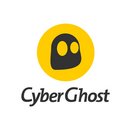As soon as we connect to the web, we leave
multiple traces. This is all information that is used in particular by e-commerce sites, social networks and our ISP. Problem: this data is “eternal”, unless you delete all your accounts. It’s almost mission impossible. Hence the interest in using a VPN as often as possible to limit the exploitation of our connections.
Like Tom Thumb, we leave traces of all our visits on the Internet. But unlike the tale of Charles Perrault and the famous little white pebbles, it is difficult for us to find our way, that is to say, to precisely inventory all our digital activity.
However, all these traces are so many pieces of a puzzle which makes it possible to constitute our robot portrait, a very faithful image which is modified in real time as soon as we are on the web or as we open an application. All sites we connect to collect personal information.
You can always apply the radical method of deleting an account. But firstly, some sites put obstacles in our way by making this process more complex to discourage us. Secondly, the damage is done: our personal data has already been exchanged between different sites and service providers such as advertising agencies.
The only solution is to use a VPN that respects our privacy as often as possible to continue surfing in complete peace of mind. Among these solutions, there are free VPNs.
What is personal data?
The notion of “personal data” is very broad. It is defined by “any information relating to an identified or identifiable natural person” according to the CNIL.
A person can therefore be identified:
- Directly (example: last name, first name)
- Indirectly (example: by an identifier (customer number), a (telephone) number, biometric data, several specific elements specific to their physical, physiological, genetic, psychological, economic, cultural or social identity, but also the voice or the image).
The identification of a natural person can be carried out:
- From a single piece of data (example: social security number, DNA).
- From the cross-referencing of a set of data (example: a woman living at a given address, born on a given day, subscribed to a given magazine and active in a given association).
Here are some examples of personal data:
- A first and last name
- A personal address
- An identity card number
- Location data
- An Internet Protocol (IP) address
- An identification cookie
- Your phone’s advertising ID
Why should we protect our personal data?
In the reports devoted to a hack and broadcast on the news, there are sometimes sidewalk microphones and people who say: “I have nothing to hide”. In reality, a lot of our personal data is recovered and used by French companies and around the world. However, we are not always aware of it and, worse, we are not warned.
Let’s just remember that the General Data Protection Regulation (GDPR) has required, since May 2018, all companies processing the data of European citizens to request explicit consent.
In addition to this legal and ethical aspect, protecting our personal information helps reduce the risk of identity theft.
There are four points to check:
- Know who you share information with;
- Securely store and dispose of your personal information, especially your social security number;
- Ask yourself questions before deciding to share your personal information;
- Maintain appropriate security on your computers and other electronic devices.
Our personal information is worth gold!
Today, almost everything we do leaves a digital trace. We generate data every time we connect to the Internet, use our GPS-enabled smartphones, communicate with our friends through social media or chat apps, and make purchases.
All this data is used to offer us targeted advertising, personalized offers or to be resold to different service providers.
What precautions should be taken?
In a hyperconnected world, it is essential to
take different measures to strengthen the confidentiality of their data and their private life. We can’t repeat it enough, it is essential to have a unique password per account. Still on the subject of passwords, they must be “strong” that is to say not basic (like 12345 or Ludovic or Paris); too easy to guess. Result: no security of your accounts. To manage them easily, it is recommended to use a password manager, a sort of safe that protects access to this sensitive information.
Also, on a more or less regular basis, search haveibeenpwned.com to find out if you have been the victim of a major data breach and are therefore at increased risk. If so, change the password for the affected account immediately.
Also review your social media settings and ensure that personal information that could be used for fraudulent purposes, such as your date of birth, middle name and contact details, is not visible to the public. Finally, turn off your smartphone’s Wi-Fi, location, and Bluetooth when they are not needed for data syncing.
Delete unused accounts
Simply create a Facebook account (or any other social network) and fill out the form recording your personal data, so that a lot of sensitive information is instantly available to everyone. But the hardest part is removing your personal data from the web. If you no longer want to use a social network or application, it is always a good idea to delete your account so that they are not accessible to other people.
This type of approach is not always simple as this site shows. Justdelete.me gives you information on how to delete your data from different Internet accounts. If you want to automatically delete your personal information from many accounts, you can use it, but it costs money. If you only want to remove one or two, do it yourself.

Why is a VPN the best solution?
The connection between the server of the site you are viewing and your computer is made in a “tunnel” reserved for this connection: the data is secure and encrypted to pass from a site A to a site B. Rather than encrypting message by message like some secure messaging services do, a VPN encrypts all flows.
Using a VPN is very easy, contrary to popular belief. Once installation and a few configuration steps, simply connect to the server of a country among those offered by the VPN provider. Your device will automatically establish an encrypted connection with the server in question. All your Internet traffic (including DNS lookups) will pass through this secure tunnel before reaching the public Internet. When it exits the tunnel and continues on its way, it will carry the IP address of the VPN server and not your IP address.
It prevents all apps and sites (and your ISP) from seeing or intercepting your data. A VPN also helps bypass geographic restrictions and overcome censorship.
The connection is private and will remain confidential: encrypted traffic cannot be captured and decrypted later if the encryption key from a past session is compromised.
There are many free VPN solutions and applications (for Android and iOS). But many exploit your personal data without your knowledge… Opt instead for a paid VPN like that of our partner ExpressVPN. This service never logs your IP addresses (source or VPN), browsing history, traffic destinations or metadata and DNS queries.
There is no activity tracking. ExpressVPN does not see or record any sites you visit and does not track the destination or content of your traffic. This platform also does not have connection registers. ExpressVPN never records connection times or session duration, for example. Using a VPN is therefore an important element in the quest to prevent personal data leaks on the Internet.
Cybersecurity and privacy: check out our other breakdowns on using a VPN
- What are the different types of online tracking?
- Is your VPN slowing down your Internet connection? We explain why
- Why use a VPN for crypto transactions?
- Do antivirus and VPN guarantee my security and privacy?
- How do you know if you can trust a VPN?
- Can your ISP monitor your browsing?
- Is it possible to delete your browsing data?
- How to secure your home network using a VPN?
- How to increase the speed of your VPN?
- How to choose a VPN for traveling abroad?
- Does a VPN protect me from hacking?
- VPN: is a security audit a guarantee of reliability?
- Is a VPN useful for your banking transactions?
1

CyberGhost VPN
-
storage
9561 servers
-
language
100 countries covered
-
lan
7 simultaneous connections
-
mood
Free trial 45 days
-
description
No data log
9.8
See the offer
2

NordVPN Essential
-
storage
5873 servers
-
language
60 countries covered
-
lan
6 simultaneous connections
-
mood
Free trial 30 days
-
description
No data log
9.7
See the offer
3

ProtonVPN
-
storage
3104 servers
-
language
69 countries covered
-
lan
10 simultaneous connections
-
mood
Free trial 30 days
-
description
No data log
9
See the offer


4